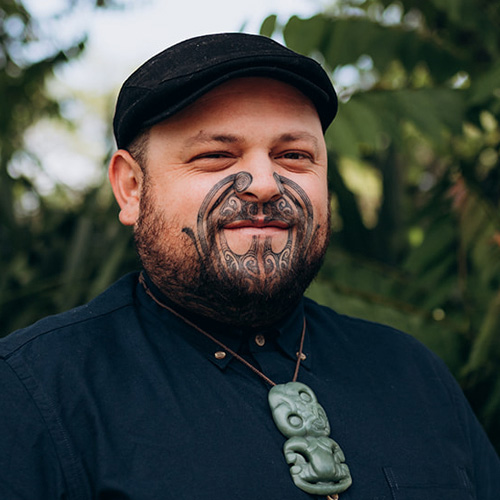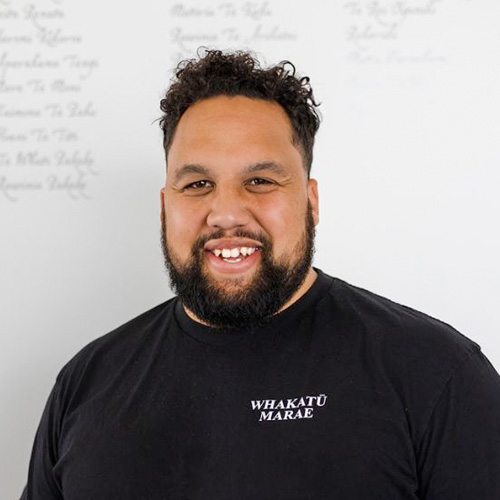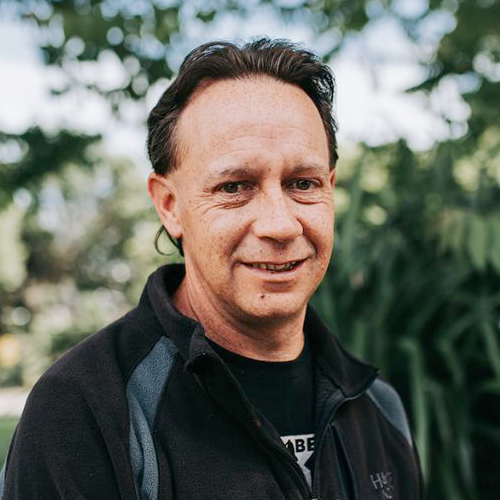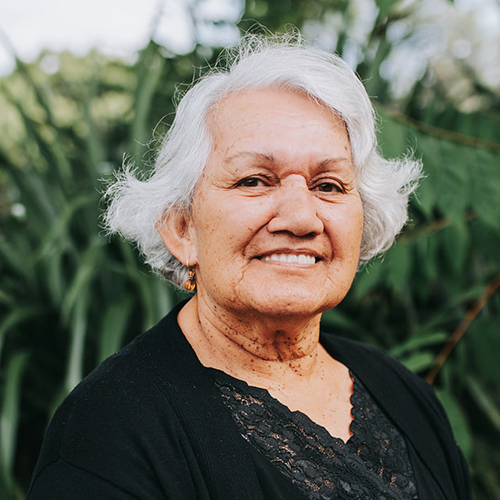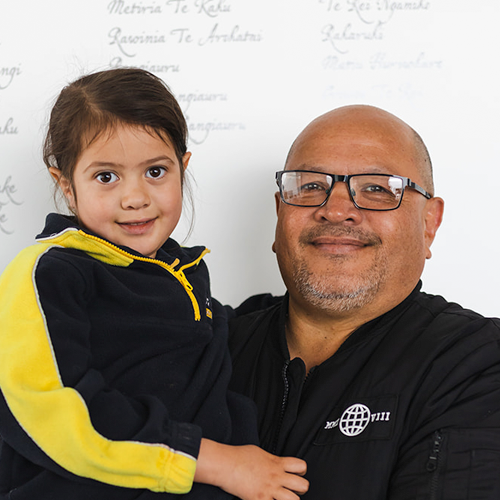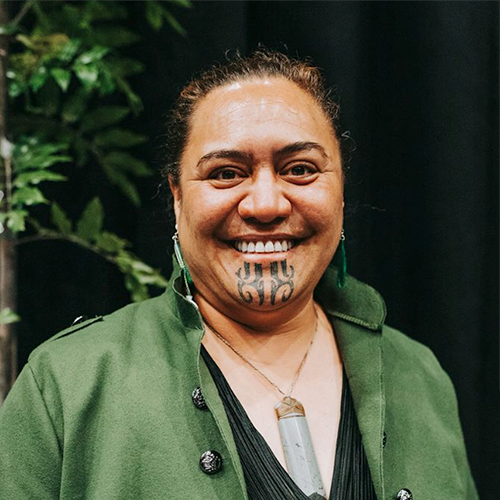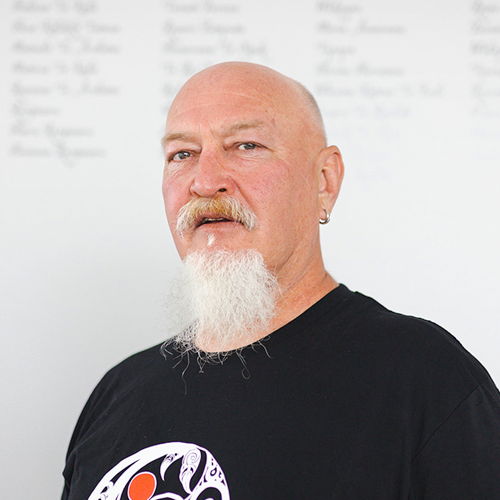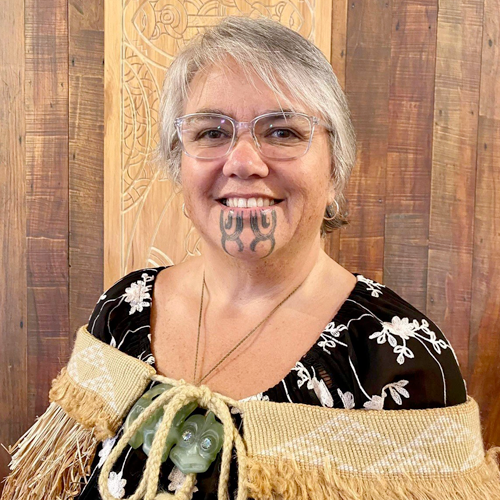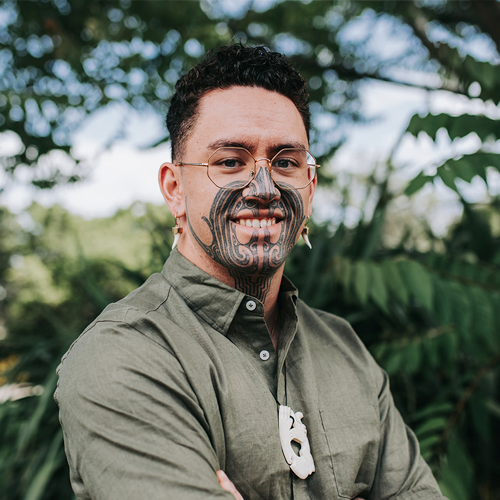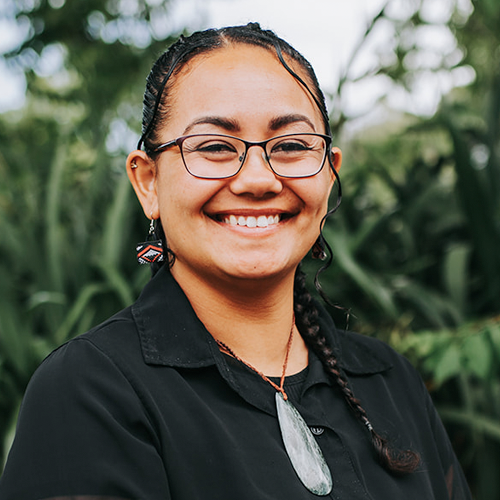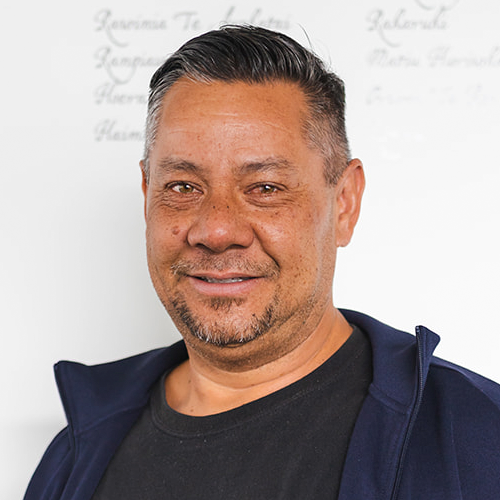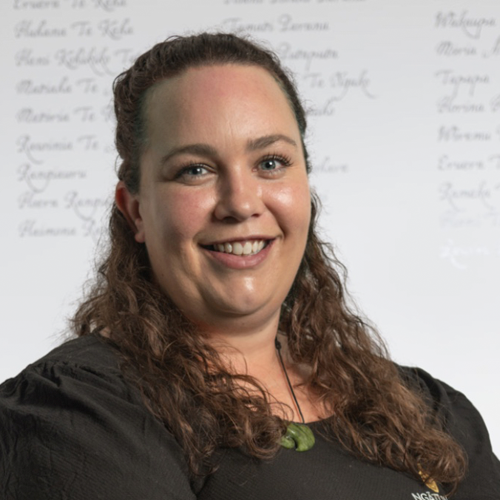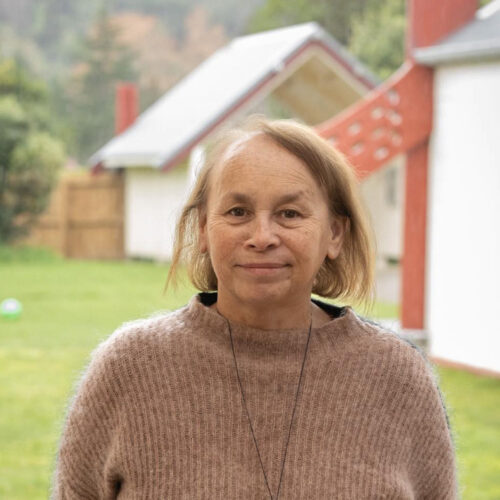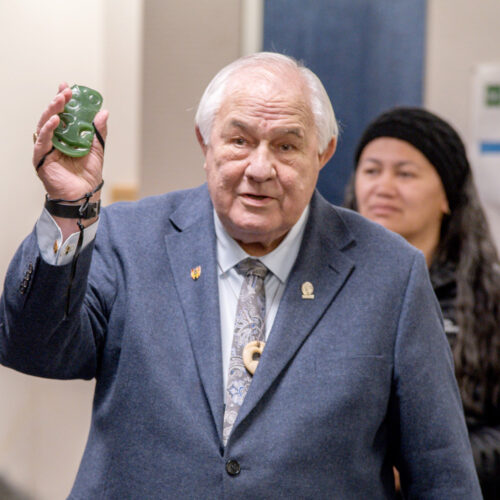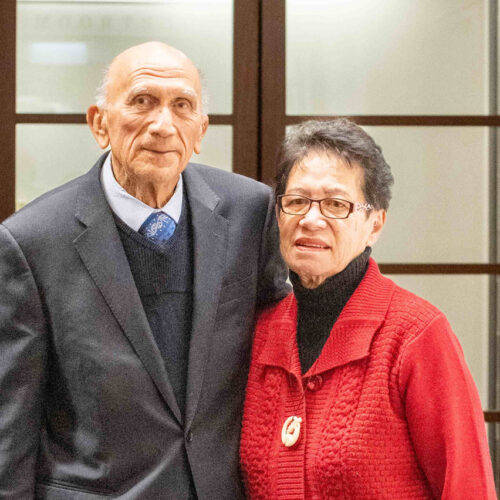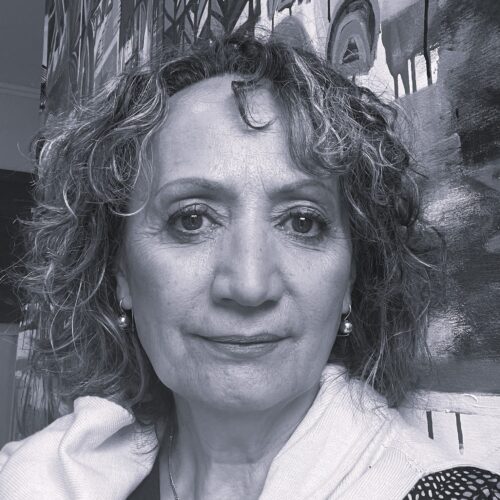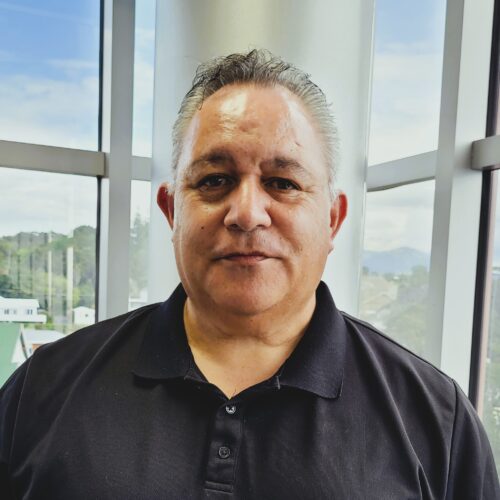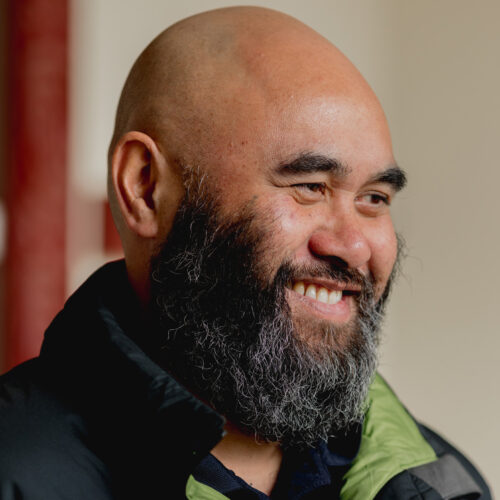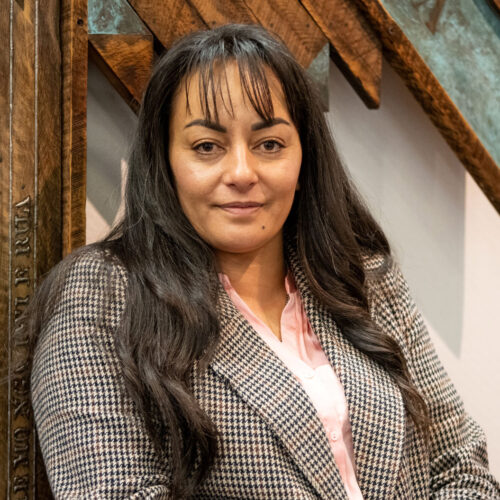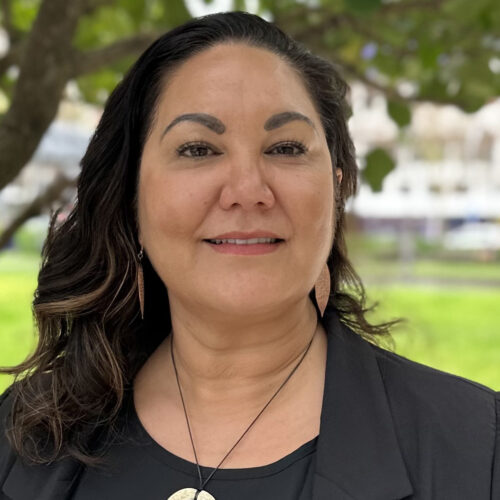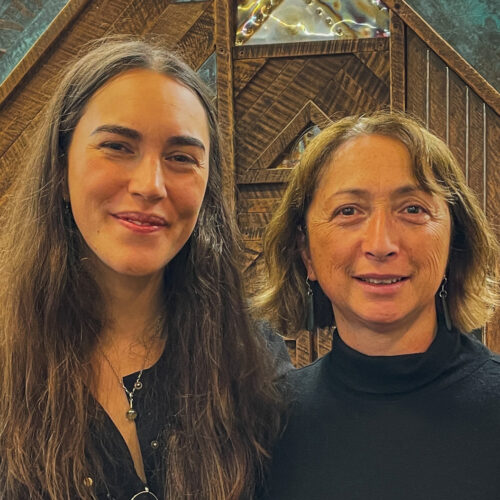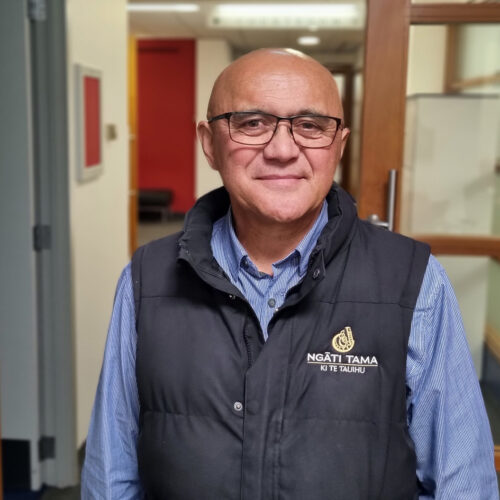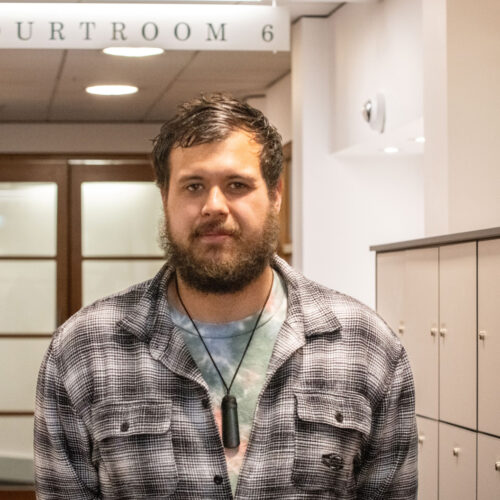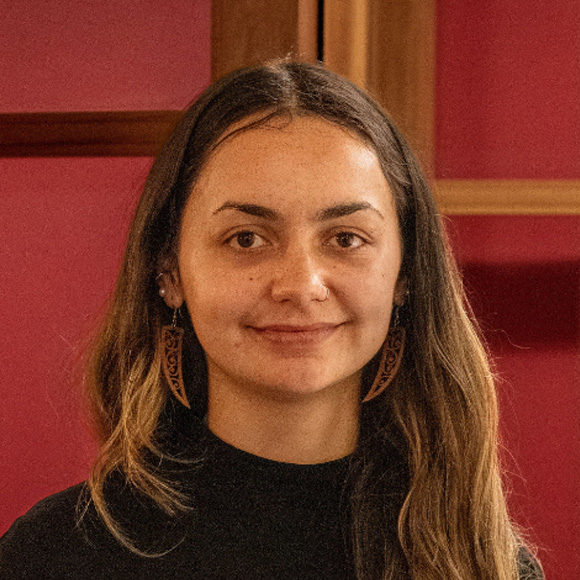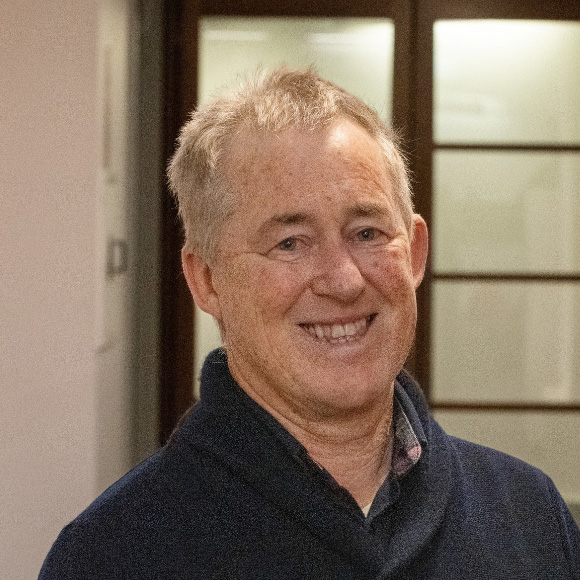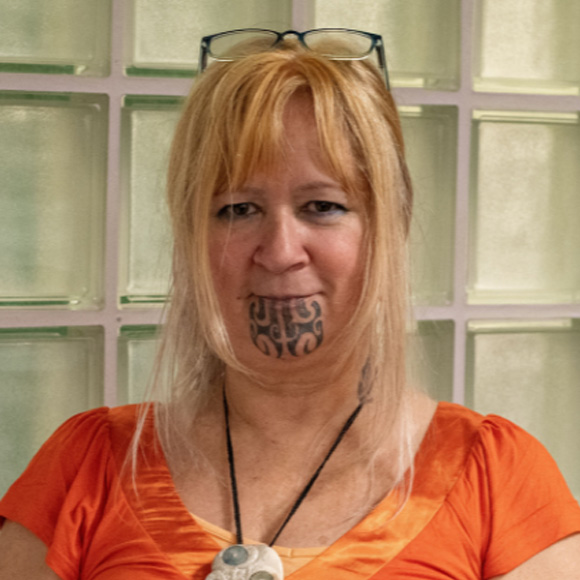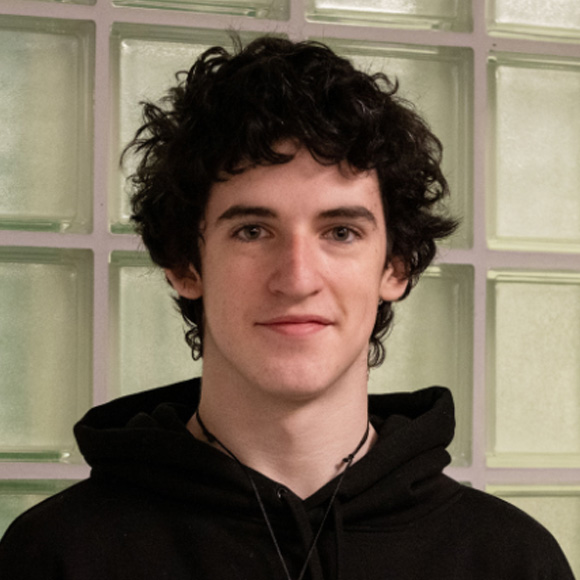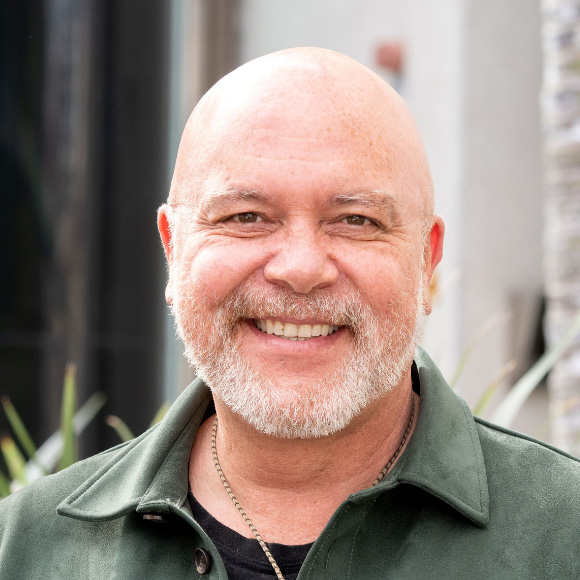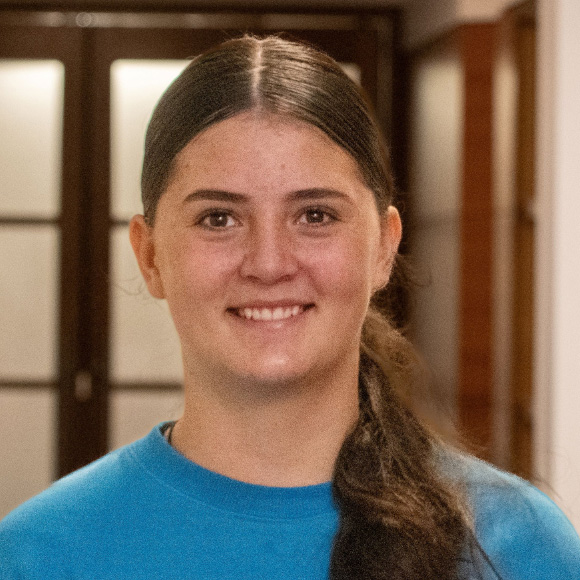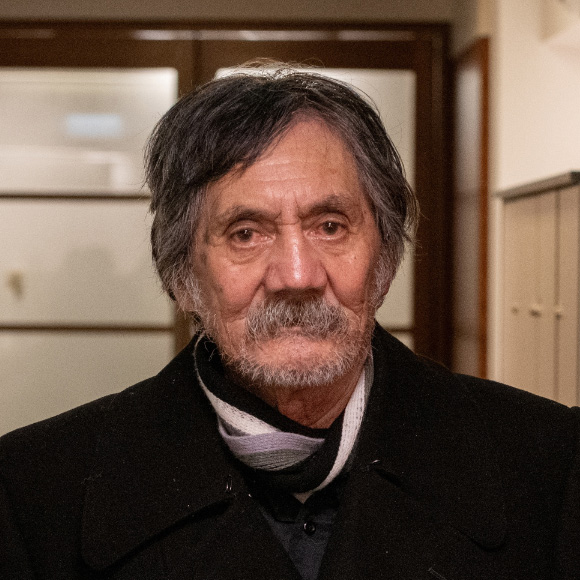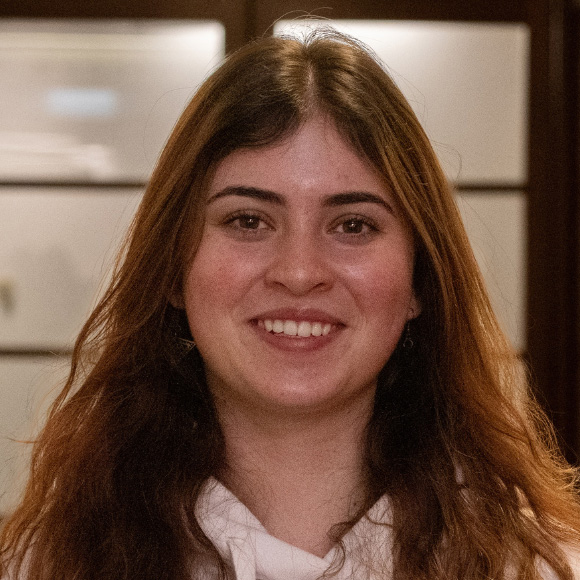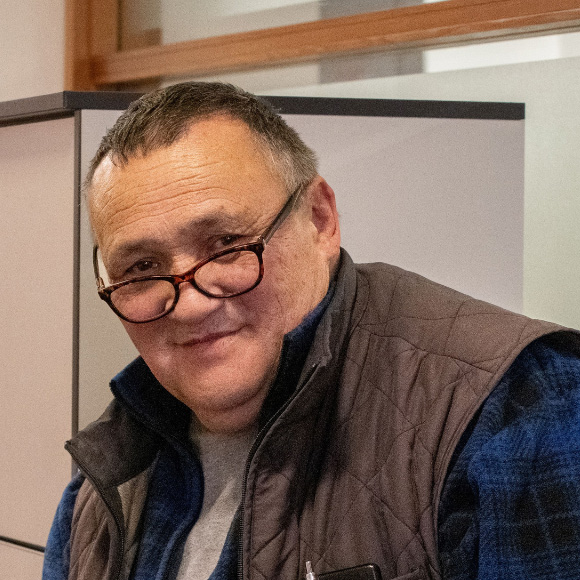Faces of Whānau
We are grateful to the many whānau and supporters who share their whakaaro here, and to all who were at the High Court during Stafford v Attorney General in 2023 to support us through the hearing. Ngā mihi.
Hamuera Manihera
Ngāti Koata, Ngāti Kuia, Ngāti Apa ki te ra tō, Ngāti Toa Rangatira, Ngāi Tahu
What does whakapapa mean to you?
Whakapapa is both my identity and my connection to the whenua where I live, linking me to my tūpuna and the environment. For me, whakapapa is a treasured legacy that carries with it the responsibility to care for and pass on.
What is your advice for someone starting out on their whakapapa journey?
Talk with your kaumātua — your nannies, toro, aunties, uncles, and cousins. Take the time to sit, listen, and listen some more, and kōrero when you can. Don’t take these moments for granted; in the blink of an eye, whānau can come and go, and with them, the stories and connections. For those raised away from Whakatū or Te Tauihu, don’t hesitate to reach out to your local iwi or to Aunty Celia and her team at Wakatū.
Share an anecdote or a fact about your tūpuna on the 1892 list
I descend from Riria Pakake, a daughter or Harirota Pakake and Te Hura Pakake of Ngāti Koata.
Riria Pakake married Teone Hippolite of Ngāti Kuia and settled at a place called Te Matapihi ki te Rangi in the Croisilles Harbour.
Can you tell us about your own whakapapa journey?
I was fortunate to be raised around my kuia, Nellie Robb (née Manihera), a custodian of whakapapa, including charts, photos, and taonga. She lived in a kaumātua flat behind Whakatū Marae, so we often played in and around the whare and the kaumatua flats.
This environment provided countless opportunities to learn from the taonga and from the many aunties and uncles who lived around the marae.
Dan Solomon
Ngāti Tama, Ngāti Koata
“I strongly believe that whakapapa has a strong wairua element to it. Many of us may not know all our whakapapa, but our whakapapa knows us and will come to us in the right time.”
What does whakapapa mean to you?
Whakapapa is everything to me. It is our genetic makeup, our identity, it is the reason why each one of us are so unique. There is so much value in knowing more about ourselves. I’m so happy for my tamariki, because from a young age they will learn a wider view of who they are.
Whakapapa is the beginning, end and everything in between. It contributes to so many factors of our lives. But most of all it is our connector, it binds us to our living whānau and to the legacy of those who have gone before us, and it inspires me to add to their legacy in my own right and way.
It grounds me in this world that is constantly moving and allows me to stand firm knowing who I am.
What is your connection to the Nelson Tenths whenua?
My connection to the Nelson Tenths whenua is through my tūpuna Wauwau, Wikitoria Te Hau and Tiripa Wauwau of Ngāti Koata.
They were named as people who gave their whenua in Nelson to the New Zealand Company in 1841. I also connect to this whenua through my Ngāti Tama ancestor Te Rei Kauhoe, son of Arihia Kauhoe, a first cousin to Wi Katene Te Puoho and Te Wahapiro Paremata. Te Rei Kauhoe and his wife Tiripa raised my great great grandmother Ngatare Te Rei and her siblings at Wakapuaka.
Many of my ancestors are buried at the urupa Haua at Wakapuaka, which makes that area special to me and my whānau.
What is your advice for someone starting out on their whakapapa journey?
See what is available to you already. This can be as simple as asking whānau members what information they may have on hand. Also try to connect with people who are skilled in this area of expertise. There are many tools available to support the research and understanding of our individual whakapapa. (Genealogy apps, social media pages dedicated to supporting whānau and also whānau research departments like Te Tāhuhu at Wakatū Incorporation).
I strongly believe that whakapapa has a strong wairua element to it. Many of us may not know all our whakapapa, but our whakapapa knows us and will come to us in the right time. I have found that as you begin seeking it out, your tūpuna will create a way for each of us to find more and more.
Share an anecdote or a fact about your tūpuna on the 1892 list
One of my tūpuna Tiripa Wauwau, is represented on a kaho paetara (batten) in Whakatū marae – in my years of working for the marae, it was a daily reminder of my whakapapa.
When Tiripa was alive, she had plentiful gardens at Wakapuaka. Her Ngāti Koata whānau would stop in on their way to Nelson from Rangitoto ki te Tonga and exchange fish and titi for her vegetables and grain. She was a connector of people.
To me, this relationship seems to be why she was remembered and represented in our marae.
Can you tell us about your own whakapapa journey?
I grew up having a strong sense of identity in my whakapapa. I knew that I was a Solomon and what came with that surname attached. We grew up leaning more into our Kahungungu connection, but also knowing that we connected to Taranaki through my grandmother.
It wasn’t until my family and I moved to Nelson in 2020 that we learnt that my whakapapa connection ran deeper then I initially thought, with my Taranaki side being linked to Te Tauihu.
Aunty Bobbie Teariki and her whānau, and Aunty Celia Hippolite were the first people when we moved down to tell me that I was from here, so I am grateful for them and all the others who have helped me to feel at home.
I’m still on my journey but by doing the following things, it makes it easier to continue that journey – Having photos of our tūpuna in our kainga and teaching our tamariki about each of the tūpuna represented. Attending and engaging in iwi events. Taking all opportunities to connect with my marae and my whānau here. This helps grow a sense of belonging. Your actions today will make a big impact for those following tomorrow, so I’m so grateful to have had the opportunity to reconnect my whānau to our tūrangawaewae.
Shane Stobba
Te Ātiawa
Shane descends from Matiaha Te Arohatai and Rawinia Te Arohatai who are named on the Native Land Court List, 1892.
“Whakapapa is a connection from the present to ōku tīpuna. It is keeping those tīpuna alive and remembered.”
Yvonne Iti
Ngāti Tama, Ngāti Rārua, Ngāti Koata
Yvonne descends from Te Wahapiro Paremata, Ngahopi Hihi, Wauwau, Wikitoria Te Hau and Tiripa Wauwau who are named on the Native Land Court List, 1892.
“My family means everything to me. The opportunity to walk the whenua of my ancestors when we came down for the AGM last year was a wonderful experience for me and my sister. I have spent precious time with my children and mokopuna talking about our tīpuna who were born and lived in the area. It’s known in the courts as the Nelson Tenths, but to them it was home.”
Dean Wilson
with his daughter, Indiana.
Ngāti Koata, Ngāti Kuia
Dean descends from Mohoao, Hariata Mohoao, Raima Mohoao, Tekateka, Ihaka Tekateka and Taare Ruka who are named on the Native Land Court List, 1892.
“Whakapapa to me is the essence of who I am, a living connection to my tūpuna. I have always been close to my Ngāti Kuia side, but learning about my tūpuna from Ngāti Koata has helped me to feel more connected to them and to my Ngāti Koata iwi. Whakapapa is the guiding light that inspires me to contribute to the legacy of my ancestors for my children and those that come after us.”
Pikiora Spooner
Ngāti Tama, Ngāti Rārua, Ngāti Koata, Ngāti Toa Rangatira, Waitaha
Pikiora descends from Te Wahapiro Paremata, who is named on the Native Land Court list, 1892.
“Rangahau (research) is massive. Start small, with two, three, four generations. Keep references, record any findings, photos, stories, court papers and timeline. Create a whānau-friendly filing system, find whānau with a common goal, seek support mentally and physically. Sharing the load is essential. There is so much to consider, but it’s worth the haerenga (journey).”
Keri Manson
Ngāti Tama, Te Ātiawa
Keri descends from Tapapa, Meihana Te Aho and Moko Tairehe of Ngāti Tama, and Eruera Te Keha, Heni Kohikiko, Henare Te Keha and Huhana Te Awaiti of Te Ātiawa, who are named on the Native Land Court List, 1892.
“What does whakapapa mean to me? It means my connections to my family, my place in Mohua, my ancestral lands, mountains and the sea.”
Bonita Bigham
Te Ātiawa, Ngāti Koata, Ngāti Tama,
Ngāti Rārua and Ngāruahine
Bonita descends from Wauwau, Wikitoria Te Hau, Tiripa Wauwau, Henare Te Keha, Huhana Te Awaiti, Whangaingahau and Te Muu, who are named on the Native Land Court List, 1892.
“What does whakapapa mean to me?
Whakapapa for me is knowing I belong to people, names and faces from the past who I may never know, other than understanding that they worked, sacrificed and survived against all odds to ensure that I have the opportunity to be here now.
It would be remiss of me not to acknowledge that or to waste it.
Whakapapa also means that I have the same obligations and responsibilities to those who will come after me to do the mahi, make more sacrifices and continue not to just survive, but to work to create an environment for our tamariki and mokopuna to thrive in the knowledge of who they are and where they also belong.
Whakapapa binds, guides and shapes my identity.”
Turanga Morgan-Edmonds
Ngāpuhi - Te Mahurehure, Ngātiwai,
Ngāti Hine, Ngāti Rārua
Turanga descends from Ruka Tikawe, Rina Ruka, Riwai Ngapaki, Hara Te Hiu, Rangihokoaia, Ema Wakarei, Whangaingahau, Tana Pukekohatu, Te Waharau Tana, Rangirangi and Ko Ihu Hera who are named on the Native Land Court List, 1892.
“My advice for anyone on a whakapapa journey?
Reach out and connect with whānau. It doesn’t necessarily have to be direct whānau either. Our Wakatū whānau have such an immense shared knowledge of the Nelson Tenths whakapapa that you’re bound to find what you’re searching for.”
Meretaka Gemini Stephens
Ngāti Rārua, Te Ātiawa, Ngāi Te Rangi
Meretaka descends from Ema Wakarei, Rangihokoaia, Whangaingahau, Hara Te Hiu and Riwai Ngapaki who are named on the Native Land Court List, 1892.
“Whakapapa means everything to me. It has given me a sense of belonging, an overwhelming sense of home. I am proud to know where I come from, proud to know that I come from a long line of strong Rangatira.
My whakapapa holds connection not only to my ancestors but to our awa, moana, maunga and Papatuanuku. I believe there is strength in whakapapa that is why I hold it so dear to my heart.”
Ihaka Griffin-Matthews
Ngāti Koata, Ngāti Rarua, Ngāti Tama, Te Ātiawa
“He uri au nā ngā hapū katoa a Koata, Rārua, Tama me Te Ātiawa.
Ko Wī Kiharoa me Haromi Kiharoa o Ngāti Koata, Ko Matenga Te Aupouri me Wera Wikirangi Rangiheke o Ngati Rārua, Te Wahapiro Paremata o Ngāti Tama me Matiaha Te Arohatai rāua ko Meteria Te Kahu o Te Ātiawa.
My advice is little steps at a time with learning your whakapapa. He tapu te whakapapa. I believe whakapapa chooses you when you either don’t expect it or when you are ready for it.
Matenga Te Aupouri lived at Taupo Pā in Wainui, Mōhua, Golden Bay. He and his whānau then moved to Tata Pā at Tata Beach and Ligar Bay. His son Raniera Matenga moved to Waitaki with his first cousin who married the prophet Te Maiharoa.
I have been interested in whakapapa from a young age. I have had my koroua whakapapa books from a young age and I often peruse whakapapa.
I am currently on the Ngāti Koata whakapapa kōmiti here in Whakatū and you can always find me in Te Tāhūhū talking whakapapa.
E kore au e ngaro, he kākano i ruia mai i Rangiatea.”
Jasmine La'auli
Ngāti Tama
Jasmine descends from Rameka Te Ketu who is named on the Native Land Court List, 1892.
What does whakapapa mean to you?
Whakapapa is important to me and my whānau because it is our belonging and connection to our whenua and to our ancestors/tūpuna. It is our Māori heritage, our identity.
What is your connection to the Nelson Tenths whenua?
Our connection to Nelson Tenths whenua is through Rameka Te Ketu (Ngāti Tama ki Te Tauihu). He resided in Tākaka and lived there for many years before returning to Taranaki to help with the land wars.
What is your advice for someone starting out on their whakapapa journey?
My advice for someone starting on their whakapapa journey is to just start. If the information is not available or hasn’t been passed down to you there are some useful websites that may help you. Don’t let anyone’s thoughts or opinions stop you from finding out your whakapapa.
Can you share an anecdote about your tūpuna on the Native Land Court List, 1892
Rameka Te Ketu signed three major Ngāti Tama deeds of 1855 (Motupipi and Tākaka land) and 1856 (Separation Point) as well as the 1863 agreement with Ngāti Rarua over boundaries at Te Tai Tapu.
In 1863 he was falsely accused of killing a cow belonging to a settler. Constable Taylor’s investigations revealed that the cow actually belonged to Rameka Te Ketu himself and that it had poisoned itself by eating potato tops.
Can you tell us about your own whakapapa journey?
Our whānau weren’t lucky enough to have my koko Tiki Wharerangi Haare Hawe whakapapa passed down to us.
I started my whakapapa journey when I started working at the Māori Land Court. I started looking through old minutes, list of historic owners documents and started to find our tūpuna links to the blocks that were left in my whānau names through succession.
I first found our Ngāti Tama link through whenua we had remaining over in Tākaka.
Wakatū helped me with our Tama whakapapa as they showed me our link to Rameka Te Ketu. While on Te Rakau Pakiaka I researched and had help from colleagues to find out the bigger picture of when our whānau settled here, where they passed away, marriages and wives.
Although the way we have found our whakapapa is not the conventional way (I would have loved to have had it passed down to us), I had to start somewhere and was lucky enough to be able to trace and connect to our whakapapa we never had.
It is now our taonga that we can pass down for generations to come.
This is one of my biggest accomplishments and the journey is still going and will never end.
Sophie Irving
Ngāti Koata, Te Ātiawa
Whānau member Sophie Irving, Ngāti Koata, Te Ātiawa on her whakapapa journey and connection to the Nelson Tenths.
What does whakapapa mean to you?
Whakapapa to me is our indigenous way to understand how the world is. It is inherent to who we are as Māori. It is our line we trace back that connects us to everything in the natural world. For me, whakapapa ties me to my hapū-based identity as Te Ātiawa and Ngāti Koata. It is a reciprocal relationship with all that is around us – we belong to the land, the river and the seas and it is our responsibility to protect and nurture it for mokopuna to come.
For those starting out on their whakapapa journey, I say learn it by making the connections. Bathe in your awa, climb your maunga, be with your people. They will teach you more than reading your whakapapa on a screen or piece of paper ever will.
What is your connection to the Nelson Tenths whenua?
My tūpuna Inia Te Hunahuna nō Te Ātiawa and Mohoao, Hariata Mohoao and Raima Mohoao nō Ngāti Koata were of the many enterprising rangatira that entered into the formal agreement with the Crown to establish the town now known as Nelson.
This is a history I learned during my time interning for Wakatū and also being a participant on the Taiohi Wānanga. I feel so privileged to have been able to wānanga, mahi and be sustained in our homelands. An experience that changed the trajectory of my life! Once you learn the atrocities our whānau endured, you can’t see life in the same way.
Learning our histories affirms to me that knowledge is power and ever since I was introduced to our rohe and pūrākau, I have maintained a burning feeling in my puku to fight for our whakapapa and our indigenous way of life.
Tell us about your tūpuna on the Native Land Court List, 1892
Inia Te Hunahuna come on the hekenga down from Waitara to Waikanae. He then went with the boatload of Kaitangata to live in Collingwood, in the Whakatū region.
Koro Inia is immortalised in the whare tūpuna Te Ao Mārama, at Onetahua marae in Mohua (Golden Bay).
Describe your own whakapapa journey
Being Māori is something I always knew I was. I think I am so privileged to have a family that valued going back to our homelands in Taranaki. It was in Taranaki that I was given an understanding of my whakapapa. That was because my aunties and uncles always told me who I was. They took me to my awa and my maunga. I had a strong foundation to be able to find out more for myself.
The generations and generations of strong foundations are what make us able to endure the effects of colonisation. Whakapapa is a reciprocal relationship, the gift of feeling a sense of belong and knowing who I am means that I need to always be in the pursuit of knowledge and kitiakitanga over our identity as Māori.
Reconnecting our whānau to each other and to their whenua is integral to Making the Tenths Whole. We are actively working to bring our whānau back together. If you believe that, like Sophie, you whakapapa to any of the tūpuna identified on the Native Land Court list, 1892, we warmly welcome you to complete this whakapapa form.
Tui MacDonald
Ngāti Koata, Ngāti Kuia, Ngāti Apa ki te Rā Tō, Rangitane o Wairau, Ngāi Tahu.
This is Tui MacDonald, Ngāti Koata, Ngāti Kuia, Ngāti Apa ki te Rā Tō, Rangitane o Wairau, Ngāi Tahu. She joined us at the hearing.
“I’ve followed the progress of the litigation for the last few years, but didn’t fully understand its significance and complexity. That was partly because I didn’t know enough about our whānau connection to Wakatū.
It was important to me to attend in person as much as possible to see and hear our witnesses. And to tautoko our Ngāti Apa ki te rā tō whānau. I was proud of the way all our expert witnesses shared their mātauranga; they stood their ground with dignity and upheld their mana in the face of some persistent questioning from the Crown on the reliability of their evidence. And for the whānaungatanga with old and new whānau.
I first met Uncle Rore in the 1990s in Blenheim at iwi hui during the Treaty claims era. He looks just the same all these years later and still carries himself with mana and humility. On the days I watched the livestream I would see him in the Court, sometimes with Lynne or others and sometimes sitting by himself listening intently and just holding the line and looking quietly confident.
Our whānau descends from one of the original owners, Ihaka Tekateka. Having seen his name in whakapapa and on land court records, I always knew he was our tīpuna and we were Ngāti Koata. Thanks to Celia for advising our whānau of a succession application that still needed to go through the Court – we then automatically became part of the Wakatū whānau.
Hearing the name of my tīpuna Ihaka Tekateka mentioned in evidence, along with the places he had lived, had an impact on me. That has led me to wanting research his life and I’ve since then I’ve found more about him and his life. He has quite an online presence!
Another of my tīpuna, John MacDonald, an agricultural labourer, arrived in Nelson in 1842 on a New Zealand Company ship from England. His son Francis married Rea Rangihiroa of Rangitane, with many whānau coming from that union. One of their children was Hane MacDonald who married Ihaka Tekateka.
I’m with Uncle Rore on this. Just give us the land we should have had all along. Maybe the new government with its focus on property rights will see this litigation as an opportunity to put things right. I hope so. Time to rectify the Crown’s historical amnesia.
James Wheeler
Te Ātiawa, Te Arawa
He is a member of the Te Here-ā-Nuku Working Committee and was present every day at the hearing in Wellington.
“My great-great-great grandmother was Merenako. She helped settled the land in Motueka and areas nearby. She had such a wonderful wairua for the land, which has come down through our generations.
My great-grandfather was Huta Pamariki Park. She established our orchard on the Pamariki block next to Te Āwhina Marae.
My grandmother Wikitoria and my grandfather Henry Bennett operated the then tobacco farm for many years. They moved to Wellington when they finished farming. They were founding members of the Crippled Children’s Society and of the Māori racing club at Otaki. My grandfather became the Chairman of the Wellington Chamber of Commerce in 1923 and 1924. I never got to ask him how he managed to become chairman of such a very Pākehā institution.
My grandmother was a founding member of the Māori Woman’s Welfare League and, after the war, when many members of the Māori battalion and others had to move into the cities to find work, she (along with other wonderful people like Vera Morgan) looked after them when they arrived. She received an OBE for services to Māori.
Being well informed and well educated, she was also an activist. She was renowned for going to Parliament and meeting with the Prime Minister, the Minister of Native Affairs and the Minister of Māori Affairs to demand back her Tenths land in Motueka. I have minutes of those meetings, which I presented at our first High Court hearing in 2011.
In 1977 the Government had had enough of people like my grandmother complaining about the land. They enacted the Wakatū Incorporation Act and gave back the Tenths land, but of course there was only about 1,600 acres given back. Having fought all that time, my grandmother died in 1976, a year before Wakatū was finally established.
To my whānau it’s all about the land and getting a return from it. I am motivated to be here (at the High Court) every day by the land. It’s amazing that the Crown is saying there’s no case here. We have the proof and the Supreme Court decision, and I firmly believe that, together, as Māori, we can do anything.”
Rore and Lynne Stafford
Ngāti Rārua, Kinohaku, Ngāti Tama, Ngāti Maniapoto
Lynne Stafford, pictured with her husband of 59 years, Rore Stafford.
Lynne has been involved in the fight for the return of Māori land since the 1970s.
She was a member of the first Wakatū Incorporation Board, from 1980-1982, before stepping aside. Together, Lynne and Rore have dedicated a large portion of their lives to the ongoing fight for the return of the Nelson Tenths whenua.
“This is a landmark case that’s about righting the wrongs that have been done to Māori. It could offer the opportunity for more Māori to have the courage to step up and get back what’s theirs, whatever it takes.
My history with this case has been long and contentious, but at its heart is the fact that I don’t want to see my people suffer any longer. I’m determined to finish this job, so our children don’t have to.
It’s been a huge learning curve, one that I’ve refused to give up on because it’s about my husband’s family and their children, our children and grandchildren, and all of our whānau. By supporting our whānau in this way, we’re ensuring our children have a future that’s not going to be damaged by history.
Given the Supreme Court decision, it’s going to be very difficult for the Crown to deny compensation – and compensation is the only way out for me.”
Moana Oh
Ngāti Koata, Ngāti Tama, Ngāti Rārua, Rangitāne o Wairau,
Ngāti Toa Rangatira, Ngāi Tahu
Moana joined us at the hearing.
“This is history. It’s taken 40 years for us to get here, a lot of resources, a lot of historical kōrero. That’s why it needs to be responded to now in a fair and equitable way.
The minute you talk about land and Māori, people think Waitangi Tribunal. But that wasn’t an avenue for us. This is a civil case under civil law. It’s about fulfilling the duties of a trustee. The trustee was the Crown and the Crown didn’t fulfil its duties to us, the beneficiaries of the trust. The case may have started nearly 200 years ago, but the law still stands.
It’s like Uncle Rore said – give us our land back and we’ll go away. Right the injustices that have affected our whānau.
Thank you to Uncle Rore and Aunty Lynne. That seems rather simple, but it’s all I can say, otherwise I would go on and on. A big bottomless thank you. After all, if they didn’t keep trying, would someone else have done this? I don’t know.
Thank you for doing something that matters so much to us.”
Anaru Wilkie
Ngāti Rārua, Te Ātiawa, Ngāti Koata, Ngāti Tama
He travelled from New Plymouth to join us at the hearing.
“I’ve come here because I’m part of the Wakatū whānau. I want to be present and bear witness to what’s happening, because it’s transformational for the future of my mokopuna, and transformational for the struggle that my mother and uncles and aunts went through when things were tight.
The bulk of my life I’ve been aware of this, carrying this, arguing about it. Now it should be put away, because it’s tiring to keep going. I want it to be over, so we can move on. But I’m also thankful, because this will change not only Wakatū, but the nation. This will smash the glass ceiling that’s prohibiting us from going to the courts to get a fair judgement on how we were dispossessed of our lands.
I’ve done political settlements, and they came with a lot of compromise. This is not a political settlement. This process is about a fair outcome, returning what’s been taken. And we will win. The Crown can delay it, or they can make a firm decision not to waste our time by understanding that they need to return our whenua. That’s what they need to do to keep their mana intact.
I first met Uncle Rore in 1991. I was a young man then, and now I’m a grandfather. I’ve watched him lead us in many different ways. He has been inspirational. A humble leader. A true rangatira. I’m humbled to be in his presence and watch what he does on our behalf. He’s created an example for us to follow.
For the Crown to make us go through this process to continually justify our existence and our place isn’t right. They will have to rebuild our relationship after this. I hope when future generations see Wakatū, they won’t see what we’ve had to go through over the last 30 years.”
Mitchell Ritai
Ngāti Mutunga, Te Ātiawa, Taranaki, Ngāruahine, Ngāti Ruanui, Ngāti Rarua, Ngāti Koata
“I’ve been following the case for a few years and I wanted to be able to come down here and tautoko the whānau. It’s important for our whānau to support this kaupapa and it’s really heartening to see the amount of support at the courthouse over the last nine weeks.
Through linking in online we could keep connected, even if you couldn’t attend in person.
This is an incredibly important kaupapa. We want the return of the land or for compensation at market rate; and it’s going to be transformative for us as a whānau, for all of us in terms of ngā uri of the heke.
When I think of Uncle Rore, I think of the whakataukī ‘He toka tū moana’ – a rock standing firm in the sea. Even though it may be battered by the winds, the waves, and the tides, it remains in place, it is unmoveable. It is resolute and determined, just like Uncle Rore has been throughout this entire journey.
This of course isn’t the end of our journey. There’s still a lot more mahi to do and will require a significant amount of participation and engagement from the whānau. I encourage whānau to continue to be involved and have your say.”
We’re 100% behind them, behind the whānau and behind our legal team. The outcome affects not just the current generations, but future generations. It’s also about standing steadfast for our tūpuna who won’t see the day we get our lands returned.
This case has been going on for close to 180 years. It’s a fight that should not have got this far. Listening to the Crown and its scattered arguments makes my blood boil. How they’re denying that we were ever customary owners of those lands, despite the Supreme Court’s ruling.
I’m feeling very positive that we’ve presented a strong case. I’ve watched our witnesses from the beginning and was deeply moved by their kōrero. Our legal team put on an awesome presentation of the evidence, they’re well prepared and it’s clear that they’re presenting the truth.
Uncle Rore has continued to fight this since the beginning with Aunty Lynne by his side. I hope that he will one day be able to rest easy knowing that he’s done his best and that we love him and thank him for being the prow of the waka, the rangatira throughout. We’re grateful we’ve had him to lead us and to have him as the face of this kaupapa.
Being here at the court is not just about listening to the hearing. It’s about meeting and talking and having kōrero with whānau we wouldn’t otherwise have met, whānau we will now say kia ora at hui because we’ve enhanced our whakapapa and connection with each other here.”
Jackie Stephens
Ngāti Rarua, Te Ātiawa, Ngāti Toa,
Ngāi Te Rangi
“I’ve been following the hearing from day one. I always wanted the opportunity to be present in person to show our whānau that there’s lots of support surrounding them and to tautoko Uncle Rore and Aunty Lynne in particular.
We’re 100% behind them, behind the whānau and behind our legal team. The outcome affects not just the current generations, but future generations. It’s also about standing steadfast for our tūpuna who won’t see the day we get our lands returned.
This case has been going on for close to 180 years. It’s a fight that should not have got this far. Listening to the Crown and its scattered arguments makes my blood boil. How they’re denying that we were ever customary owners of those lands, despite the Supreme Court’s ruling.
I’m feeling very positive that we’ve presented a strong case. I’ve watched our witnesses from the beginning and was deeply moved by their kōrero. Our legal team put on an awesome presentation of the evidence, they’re well prepared and it’s clear that they’re presenting the truth.
Uncle Rore has continued to fight this since the beginning with Aunty Lynne by his side. I hope that he will one day be able to rest easy knowing that he’s done his best and that we love him and thank him for being the prow of the waka, the rangatira throughout. We’re grateful we’ve had him to lead us and to have him as the face of this kaupapa.
Being here at the court is not just about listening to the hearing. It’s about meeting and talking and having kōrero with whānau we wouldn’t otherwise have met, whānau we will now say kia ora at hui because we’ve enhanced our whakapapa and connection with each other here.”
Renee Thomas
Ngāti Rārua, Ngāti Toarangatira, Ngāti Tama,
Te Ātiawa and Ngāi Tahu
“It is very special to be present for this momentous and precedent-setting case, and a privilege to be supporting my whānau who are working tirelessly for us all.
I was born and bred in Te Tauihu. I have spent most of my life here and have a deep connection to our whenua and our whānau across from Waikawa and Wairau, to Whakatū, Motueka, Mārahau and Mohua.
This opportunity has deepened my understanding and knowledge about the case and its importance for our whānau, and the wider community in Te Tauihu.
I talked on the way to the airport with Uncle Rore. Our kōrero was about how the Crown witnesses are just doing a job, that this case has no personal aspect for them. But for our whānau this is about fighting for the historic injustices that happened to our tūpuna, to protect the future for our mokopuna.
We have a deeply personal aspect to this case and are not doing it for money, but for mana and out of aroha.”
Jessica Sanderson | Hinemarie Bailey
Jessica: “I’m incredibly proud of our whanaunga who have committed to this case to ensure justice is found. It takes a profound amount of willpower, energy, skills, and resources to do that.
I also feel sad that they have to do this at all – given the Supreme Court already found in our favour in 2017.
This morning I felt like our tūpuna were in the room and that was a mix of emotions too – pride, but also sadness. It just hit me how long the fight has been, so much time, energy, and resources. I found myself having daydreams of lost possibilities had the land not been stolen.
There was a Māori security guard on that day, who seemed to have his hospitality dialled up. He took care with how he spoke to us and apologised profusely for small things that were not his fault, like a PA system not working. It made me think he was acutely aware of the injustice going on, as so many others would be if they understood this case.”
Hinemarie: “My father, Charles Bailey, spent many years of his life fighting for the retrieval of muru raupatu lands in Taranaki.
Around the same time as Wakatū Incorporation was incorporated, Parininihi ki Waitōtara Incorporation was incorporated. My dad was the inaugural Chair.
So, as he would say, it’s important to tautoko kaupapa that continues this fight.”
Te Ahu Rei
Ngāti Tama, Ngāti Koata, Ngāti Toa, Te Āti Awa,
Ngā Ruahinerangi.
“I’m still finding my roots and connections in Te Tauihu. As a child, I’d always known my Ngāti Tama roots, but I wanted to delve into them more. That’s why I moved to Motueka four years ago.
I’m one of 14 children and the first of several generations to come back to Te Tauihu, after our tūpuna left Whakapuaka to return to Taranaki over 100 years ago.
I wanted to find out more about our Ngāti Tama side and the places where our tūpuna lived. I’m trying to get my children involved, as well as my siblings and our extended whānau. I’m doing the reconnaissance. We’re very fortunate to have the likes of Kerensa [Johnston] and Celia [Hawea] directing us.
It would be remiss of me not to support the hearing. It’s important to front up. All these people here are the mokopuna of those tūpuna who were part of the migrations from Taranaki and Waikato in the early 1800s, so it’s behoven upon me to be present.
What this hearing has done is bring us together and made us stronger. I told my whānau that I was coming here to represent us. It’s a very emotional journey.
When I saw the photos of the tūpuna in the courtroom, I wished I had brought our kuia with me. It’s OK, though, as I’m here. And I’m representing all who have gone before us.
Tēnei te mihi kau ake ki te kaupapa e whakakotahi nei i a tātou i roto i te pono, te tika me te māramatanga, tēnā tātou katoa.”
Manahi Gardiner, 23
Te Ātiawa
“This is all about sorting out our whenua, sorting out what are the Tenths lands and what are the occupation lands. It’s about doing justice and doing right by our people – all of the iwi and hapū concerned. We have been struggling and fighting this for so long.
The outcome I hope to see is for our lands to be returned into the hands of our whānau and to rekindle our whānau. In order for the Crown to restore its mana, our whenua must be given back.
Through that we will make the mauri of the people well, improve the spiritual, physical and social wellbeing of our tribes, give justice to what has happened in the past, and provide recognition of the mana whenua in Te Tauihu.
My message for Uncle Rore?
Nō mātou te mānari ki ā koe e Matua Rore, ko koe rā kei te mataika o te kaupapa nei, ki te tātā atu, ki te wero atu ki te taepō weriweri e kiia nei ko te karauna, ki te whakahoki atu i ngā whenua ki ō stātou whānau, hei whakapiki i te mana motuhake ā ō tātou iwi. Mei kore ake tō kaha, tō māia, tō manawanui ki te horahia i ēnei take, ki te tauaro o te kōti, ka haere, ka haere te Wakatū nei ki te wīwī, ki te wāwā. Ko te kātū tangata i ā koe, he manawaroa, he manawa tītī, he manawa piharau.
We are very grateful and thankful to have you Uncle Rore as a kaumātua spearheading this kaupapa, to face the crown for the sake of fairness and justice, to return our whenua to our whānau, to rekindle our whānau with our whenua and to increase the wellbeing of our people. Without your tenacity and strength, who knows where our direction would be today.
You are a kaumātua with a heart of a lion that fights to the bitter end for the greater good of all.”
Moana Solomon, 25
Ngāti Koata, Ngāti Toa Rangatira,
Ngāi Tahu
I didn’t get to meet my koro in person, but part of his legacy is fighting this case. I know that he was thinking of his future mokopuna when he first lodged the claim.
I would like to see restitution. It would empower and encourage Ngā Uri to reconnect with our whakapapa. Being disconnected from the whenua makes it hard to maintain our whakapapa connections and that’s one of the reasons I’ve come here today, to strengthen those connections so we’re not at risk of losing track of them altogether.
Moana is the granddaughter of Hohepa Matuaiwi Solomon who lodged the original Wai 56 Treaty claim alongside kaumātua Rore Stafford in 1986.
Chris Brosnahan
Ngāi Tahu
I’ve come to the hearing to follow the process and learn about it. The plaintiffs have been looking for justice. It’s unfortunate they’ve had to come to the High Court to seek redress. I can’t understand why the crown hasn’t negotiated outside the court process.
This is a landmark case that could set a precedent for other cases, and it’s of relevance to the whole of Maoridom. I’d just like to see justice.
Airini Kaveney
Ngāti Rārua, Rangitāne o Wairau,
Ngāti Kuia ki Pakohe, Te Ātiawa,
mother of Elvis
This is about educating Elvis about Ngāti Raruatanga, an opportunity for whanaungatanga and building mātauranga, and also supporting him in understanding about the whenua and what happened to our tūpuna.
We continue to fight as Matua Rore Stafford, our rangatira, and our iwi continue fighting for Māori mana motuhake.
It’s about paying respects to our elders for how hard they fought, and we continue to fight for our whenua and our people.
Elvis Kaveney, 16
Ngāti Rārua, Rangitāne o Wairau,
Ngāti Kuia ki Pakohe, Te Ātiawa,
son of Airini
Mum’s been teaching me about our tūpuna and the history of our people. For me it was important to come here to connect with whānau and understand and learn about the case.
It’s also about nana. She grew up in a time that was much different, when being Māori was a lot different – in not good ways. Having the ability now to learn what nana wasn’t taught, and wasn’t able to teach us, is very important.
Rōpata Taylor
Ngāti Rārua, Te Ātiawa,
Ngāti Tama, Ngāti Koata
Whakapapa runs deep – and what had happened to our families, to us, was a burden and responsibility we carried with us across time and space. Now we want to rekindle the fires for all of our people that left and bring them back home to “make the whānau whole”.
About Rōpata Taylor
Ariana Banks, 12
Ngāti Rārua, Rangitāne, Ngāti Kuia
I learnt about the Nelson Tenths because dad has spoken to us about it, but my intermediate school went to the museum and got told the whole story, too.
When we were learning about it, I knew that my dad was going to be part of it. It’s cool that dad’s giving evidence and I’m proud of him.
Ariana is the daughter of Jeremy Banks
Herbert Manupiri
When I was young, I used to pick fruit, hops and tobacco in Motueka and the bottom of Takaka Hill. I didn’t know at that time that the land was part of me; I only learnt about my connection with the whenua when my father passed away.
My personal connection with the Nelson Tenths is through my grandfather – the Manupiri line. Here at the hearing, I’m finding my whānau; whānau I didn’t know I had. I had to make the trip back because this is where my heart is.
Herbert travelled from Australia to be at the hearing. He is the cousin of Kaumātua Rore Stafford
Xanthe Banks, 16
Ngāti Rārua, Rangitāne, Ngāti Kuia
I’m here to support my dad who’s giving evidence in the case. I also did a research project on the Nelson Tenths for my school history class.
This has affected our tūpuna and our iwi today. We hope we get everything we’re asking for and that this is resolved in a way that’s positive for the iwi of Te Tauihu.
Xanthe is the daughter of Jeremy Banks
Kingi Morgan
Ngāti Rārua, Ngāti Tama, Te Ātiawa
Hearing them talk in the hearing about Te Maatu, an area that’s really significant to us, is like someone reminded you how awful it was when someone you love dies, and they keep reminding you of it.
I know a lot of people talk about money, money, money, but it’s not about that. In the end it’s about family. The people who live on top of the land and what we do with that land.

